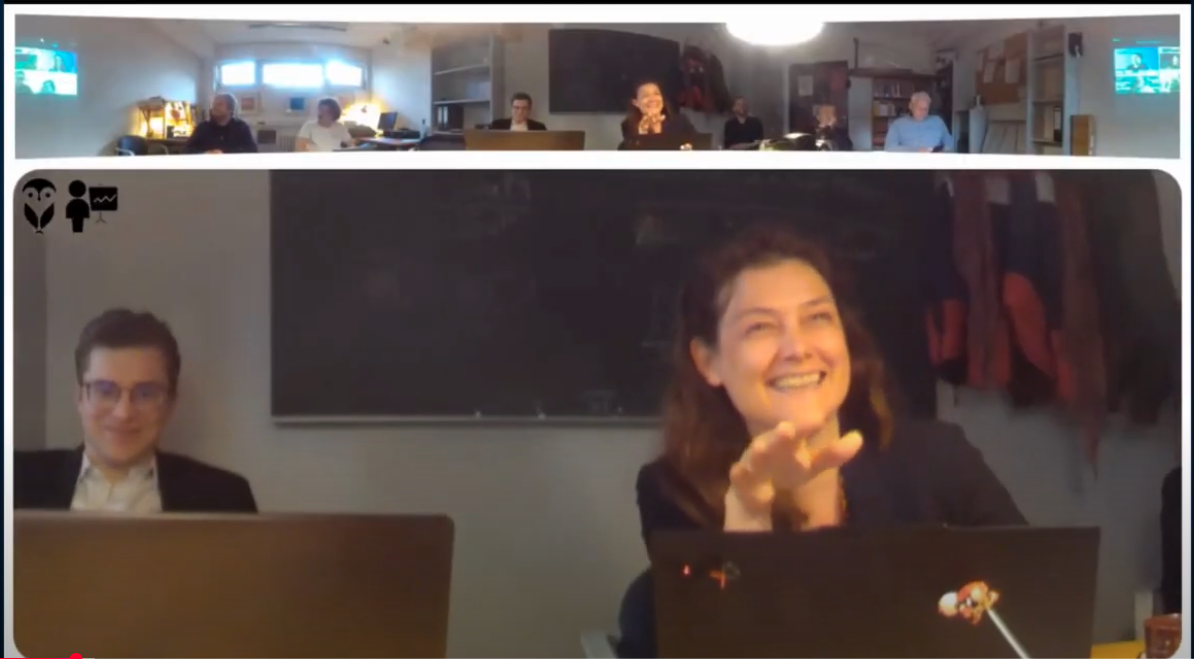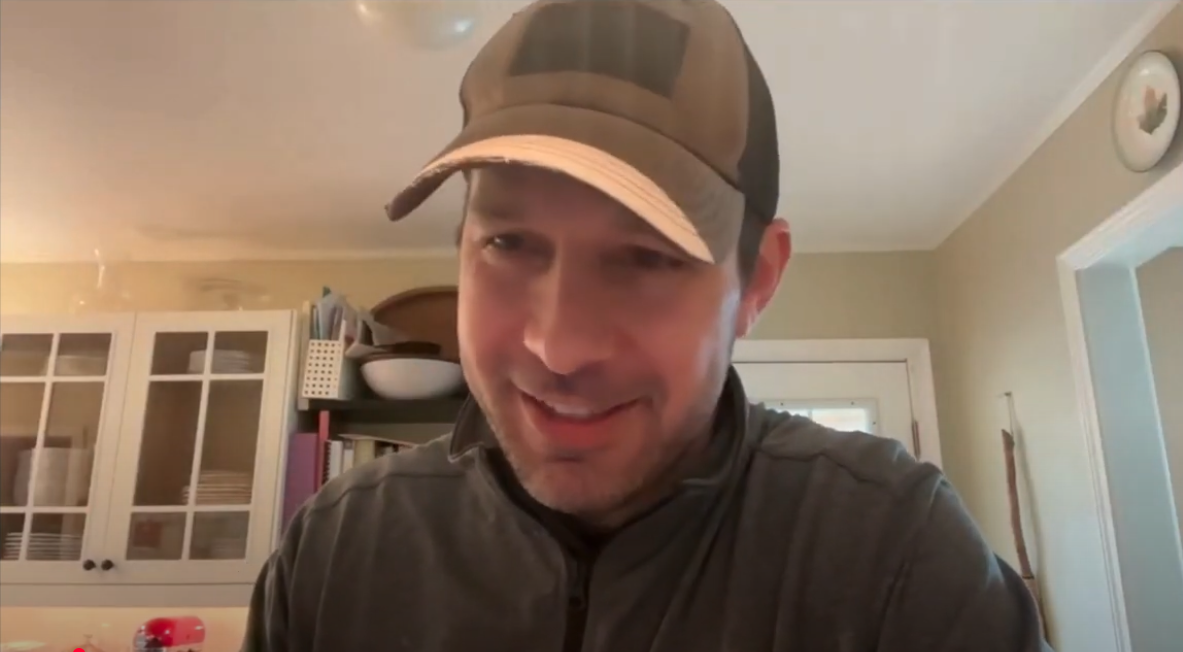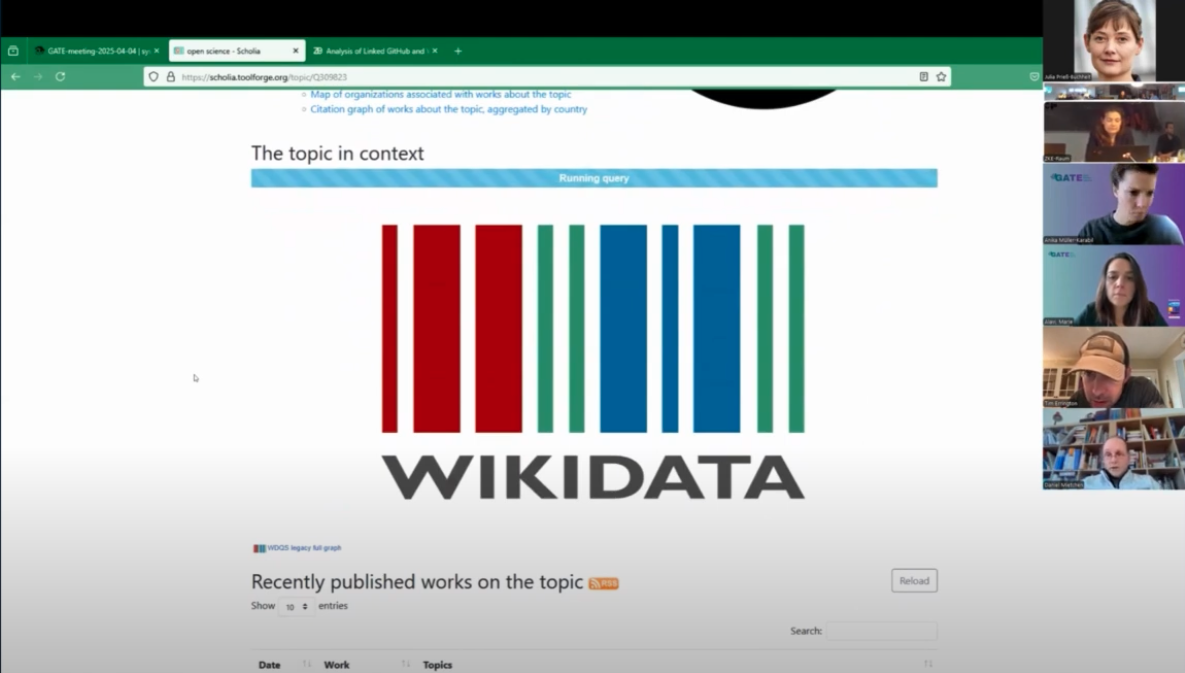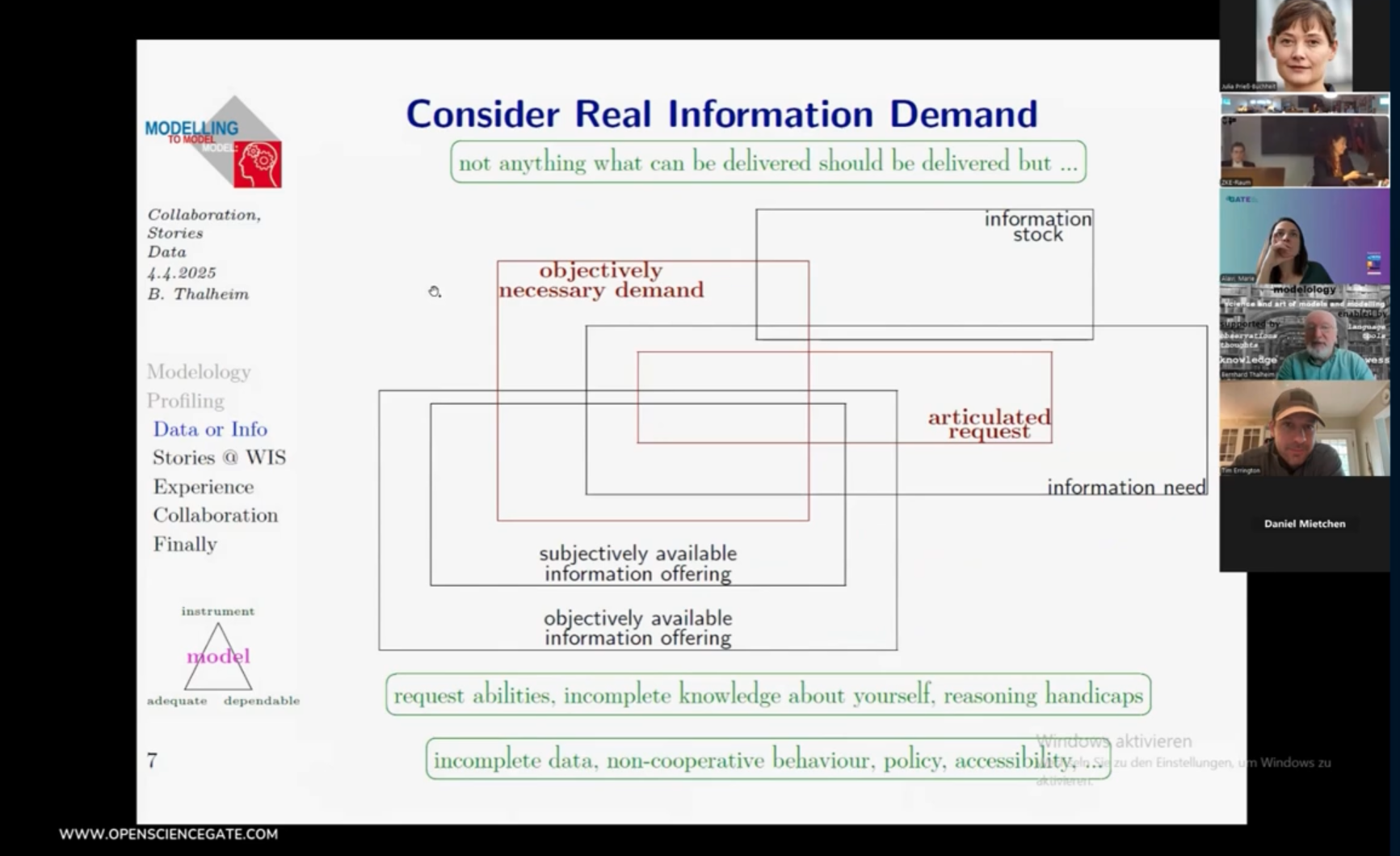News
The GATE Research meeting laid out the first steps toward the 2025 GATE Report, supporting the Open Science community through continuous knowledge exchange. The GATE team met the experts Daniel Mietchen (FIZ Karlsruhe), Tim Errington (COS), and Bernhard Thalheim (Kiel University) to explore how data collected by GATE could contribute to an actionable, community-driven GATE Report.
Explore the introduction by Katharina Miller (MIK) and additional videos from this meeting that showcase concrete perspectives here.
GATE's research team (CAU)

The meeting began with GATE’s research coordinator, Julia Priess-Buchheit, welcoming all speakers, after which the GATE research team proceeded to discuss the methodologies for analysing the GATE data, taking a step-by-step approach to the much-anticipated GATE Report 2025.
Listen to the GATE team provide an overview of the initiative here.
Tim Errington (COS)

As part of the meeting, Tim Errington proposed using qualitative data, both existing and from literature, to explore Open Science themes and relationships without imposing a strict top-down taxonomy. This approach respects the diversity of Open Science experts and aims to provide a deeper understanding of themes in Open Science through continuous engagement.
Watch here.
Daniel Mietchen (FIZ Karlsruhe)

GATE expert Daniel Mietchen introduced ideas for formalising data using advanced methods such as knowledge graphs and nanopublications (e.g. RIO Journal), enhancing comparability and machine readability. He advocated using diverse, controlled vocabularies and proposed structured responses in GATE services to simplify data processing.
Watch here.
Bernhard Thalheim (CAU)

Bernhard Thalheim focused on robust modelling, user profiling, and clear knowledge definitions to structure and present data effectively. He emphasised understanding the target audience and suggested creating various report versions tailored to different reader segments, ensuring good data quality to achieve optimal outcomes.
Watch here.

